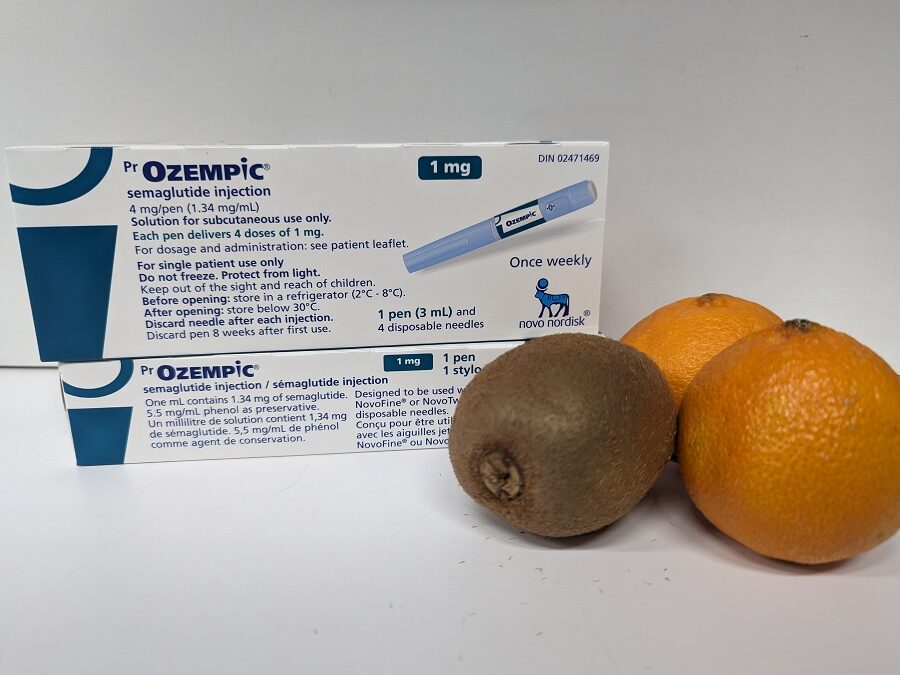Ozempic (semaglutide) is a medication commonly prescribed to individuals with type 2 diabetes to help manage blood sugar levels. Alongside medication, a healthy diet is crucial for maintaining overall well-being and effectively managing diabetes. Understanding which foods to avoid and which to embrace can complement the benefits of Ozempic, promoting better health outcomes and improved glucose control.
Foods to Avoid
1. Highly Processed Foods: Processed foods often contain high levels of refined carbohydrates, unhealthy fats, and added sugars, which can spike blood sugar levels and contribute to weight gain. Examples include sugary snacks, processed meats, and refined grains like white bread and pasta.
2. Sugary Beverages: Sweetened beverages such as soda, fruit juices, and energy drinks can lead to rapid spikes in blood sugar levels due to their high sugar content. Opting for water, herbal teas, or sparkling water with no added sugars is a healthier choice.
3. Trans Fats: Trans fats, commonly found in fried foods, baked goods, and margarine, can increase the risk of heart disease and worsen insulin resistance in individuals with diabetes. It’s advisable to avoid foods containing partially hydrogenated oils and opt for healthier fat sources like avocados, nuts, and olive oil instead.
4. High Glycemic Index (GI) Foods: Foods with a high glycemic index can cause blood sugar levels to rise quickly after consumption. Examples include white rice, potatoes, and sugary cereals. Instead, choose foods with a lower GI, such as whole grains, legumes, and non-starchy vegetables, which have a gentler impact on blood sugar levels.
5. Excessive Alcohol: Alcohol can interfere with blood sugar regulation and may cause hypoglycemia (low blood sugar) when consumed in excess, especially if taken alongside Ozempic. Limit alcohol consumption and opt for light beer, dry wine, or spirits mixed with sugar-free mixers if you choose to drink.
What to Eat
1. Non-Starchy Vegetables: Non-starchy vegetables like leafy greens, broccoli, cauliflower, and bell peppers are low in calories and carbohydrates while being rich in fiber, vitamins, and minerals. They help promote satiety and stabilize blood sugar levels, making them an excellent choice for individuals with diabetes.
2. Lean Proteins: Incorporating lean protein sources such as poultry, fish, tofu, and legumes into meals can help regulate blood sugar levels and promote feelings of fullness. Protein-rich foods have a minimal impact on blood glucose compared to carbohydrates, making them an essential component of a balanced diet for individuals taking Ozempic.
3. Whole Grains: Whole grains like quinoa, brown rice, and oats are rich in fiber and nutrients, making them a healthier alternative to refined grains. Fiber helps slow down the absorption of sugar into the bloodstream, preventing rapid spikes in blood glucose levels.
4. Healthy Fats: Including sources of healthy fats such as avocados, nuts, seeds, and olive oil in your diet can help improve insulin sensitivity and promote heart health. These fats provide essential nutrients and contribute to feelings of satisfaction after meals.
5. Low-Sugar Fruits: While fruits contain natural sugars, some options are lower in sugar and higher in fiber, making them suitable for individuals with diabetes. Examples include berries, citrus fruits, and apples. Moderation is key, and it’s advisable to pair fruits with a source of protein or healthy fat to further mitigate blood sugar spikes.
Maintaining a balanced diet is paramount for individuals managing diabetes, especially while taking medications like Ozempic. By avoiding processed foods, sugary beverages, and unhealthy fats, and instead opting for nutrient-dense options like non-starchy vegetables, lean proteins, whole grains, and healthy fats, individuals can better regulate their blood sugar levels and support overall health. It’s essential to work closely with a healthcare provider or dietitian to develop a personalized meal plan that aligns with individual health goals and medication regimens. Making informed dietary choices can enhance the effectiveness of Ozempic and contribute to long-term well-being for individuals living with type 2 diabetes.

